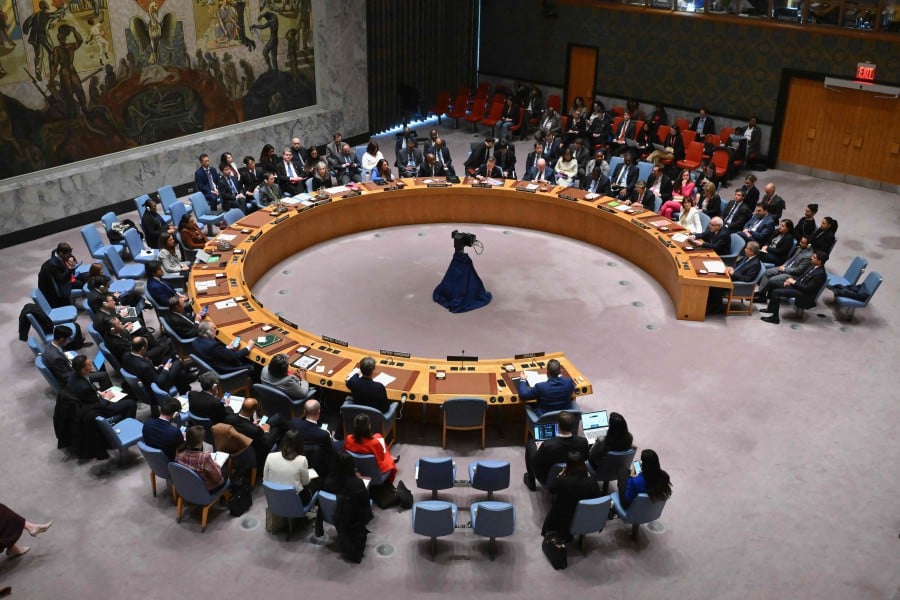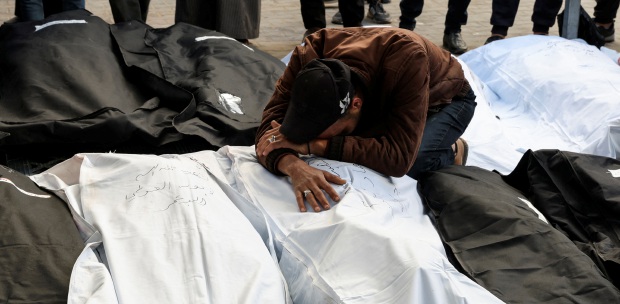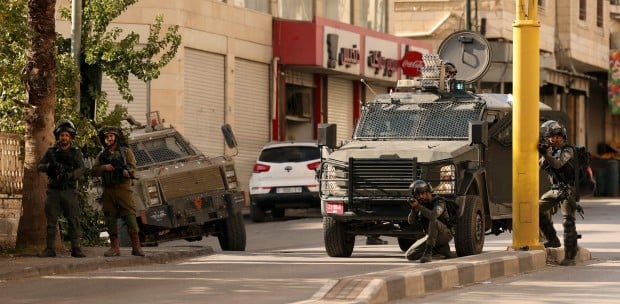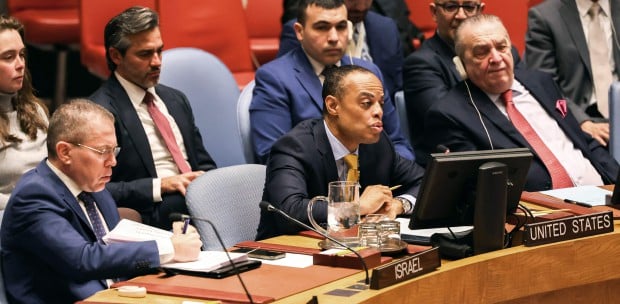The United Nations chief Antonio Guterres is right in calling for an immediate end to the nightmare in Gaza.
Communities there have been obliterated, homes demolished, entire families and generations have been wiped out, AFP news agency quoted him as saying on a visit to Gaza on Saturday.
But the United States continues to puzzle the world. On one hand, Washington calls on Israel to "minimise" civilian deaths. Yet on the other hand, it continues to veto drafts calling for an immediate ceasefire.
The latest, the third to be vetoed away, was one drafted by Algeria. Instead, the US had a rival draft, which according to the UN news portal, stated the "imperative" for "an immediate and sustained ceasefire to protect civilians on all sides" linked to the release of hostages by Hamas.
Imperative, we all know, isn't in any sense a call for an immediate ceasefire, but should Russia and China have vetoed it on Friday? If the US media is right, the US took weeks to draft the fourth UN Security Council resolution.
Couldn't Russia, China and the US have spent a few more hours on the draft to make sure it got passed? Why the geopolitical play? Fiddling with words for some grand geopolitical game — at the expense of Palestinian civilian lives — is a shame. Nations must not lose their humanity thus.
The Israeli atrocities that began on Oct 7 following an attack by Hamas is close to six months old. More than 32,000 Palestinians, mostly women and children, have been killed. Several times more lie buried under demolished schools, hospitals, universities and homes.
Israel knows it is a war crime and yet, it is targeting such buildings. Tel Aviv claims Hamas is using the buildings to launch its attacks on Israel. If the past is any guide, such claims have been proven to be false narratives to please Israel's allies. But still, even if there is an ounce of truth in the claims, Hamas must fight their battles from elsewhere to avoid the loss of innocent lives.
Be that as it may, Israel must be reminded — as Prime Minister Datuk Seri Anwar Ibrahim and Guterres have — that the Israeli-Palestinian problem didn't begin on Oct 7. It began 75 years ago when the Palestinians were robbed of their land by illegal Israeli settlers from Europe. To use Guterres' words, the Oct 7 attack by Hamas "did not happen in a vacuum".
Civilian lives must be saved. For this to happen, Israel and Hamas must cease hostilities, not sometime in the future but now. But it won't happen without some kind of pressure by the US on Israel.
The longer the rope the US provides Israel, the greater will Tel Aviv's impunity grow. There has to be a US red line. Cutting off weapons to Israel is one.
Despite Israel's denial, Tel Aviv is not allowing humanitarian aid into Gaza. On March 18, the European Union's foreign affairs chief, Josep Borrell, accused Israel of creating famine and using starvation as a weapon of war. This is certainly a war crime.
The International Criminal Court must not watch from the sidelines if it wants to safeguard its reputation. It must issue a warrant of arrest against Benjamin Netanyahu. He is a menace to Israel and the two-state solution. He must go.





